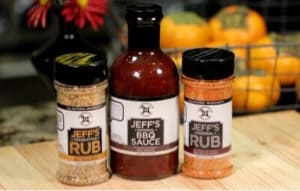- Aug 30, 2007
- 79
- 10
This is a little off topic, but there's no better place to gfine meat experts.
I've got the itch to dry-age a big 'ol New York Strip (the wholke thing because you can't age individual steaks.
Has anyone ever tried this? It seems simple enough -- a cold refrigerator and the daily chore of changing the white-cloth wrappings.
I'd be interested to get your input. Thanks.
I've got the itch to dry-age a big 'ol New York Strip (the wholke thing because you can't age individual steaks.
Has anyone ever tried this? It seems simple enough -- a cold refrigerator and the daily chore of changing the white-cloth wrappings.
I'd be interested to get your input. Thanks.








